- Home
- Roald Dahl
My Uncle Oswald Page 21
My Uncle Oswald Read online
Page 21
And that, my friends, is almost exactly what happened. I went back to the Sudan. I stayed there for a little over two years, and I don't mind telling you that although I learned a great deal about the Blister Beetle, I also learned a thing or two about the ladies who inhabit those regions. The tribes were sharply divided and they seldom mixed. But I mixed with them all right, with the Nubians, the Hassarians, the Beggaras, the Shil-luks, the Shukrias and the curiously light-coloured Niam-Niams who live west of the Blue Nile. I found the Nubians especially to my taste and I wouldn't be surprised if that was where the word nubile originated.
By the end of 1923, my little factory was going full blast and turning out a thousand pills a day.
By 1925, I had agents in eight cities. I had chosen them carefully. All, without exception, were retired army generals. Unemployed generals are common in every country, and these men, I discovered, were cut out for this particular type of job. They were efficient. They were unscrupulous. They were brave. They had little regard for human life. And they lacked sufficient intelligence to cheat me without being caught.
It was an immensely lucrative operation. The profits were astronomical. But after a few years I grew bored with running such a big operation and I turned the whole thing over to a Greek syndicate in exchange for one-half of the profits. The Greeks were happy, I was happy and hundreds of thousands of customers have been happy ever since.
I am unashamedly proud of my contribution to the happiness of the human race. Not many men of business and certainly very few millionaires can tell themselves with a clear conscience that the accumulation of their wealth has spread such a high degree of ecstasy and joy among their clients. And it pleases me very much to have discovered that the dangers to human health of cantharis vesicatoria sudanii have been grossly exaggerated. My records show that not more than four or five dozen a year at the most suffer any serious or crippling effects from the magic substance. Very few die.
Just one more thing. In 1935, some fifteen years later, I was having breakfast in my Paris house and reading the morning paper when my eye was caught and held by the following item in one of the gossip columns (translated from the French):
'La Maison d'Or' at Cap Ferrat, the largest and most luxurious private property on the entire Cote d'Azur, has recently changed hands. It has been bought by an English couple, Professor Arthur Woresley and his beautiful wife Yasmin. The Woresley's have come to France from Buenos Aires where they have been living for many years, and very welcome they are. They will add great lustre to the glittering Riviera scene. As well as buying the magnificent 'La Maison d'Or', they have just taken delivery of a superb oceangoing yacht which is the envy of every millionaire on the Mediterranean. It has a crew of eighteen and cabin accommodation for ten people. The Woresleys have named the yacht SPERM. When I asked Mrs Woresley why they had chosen that rather curious name, she laughed and said, 'Oh, I don't know. I suppose because it's such a whale of a ship.'
Quite a girl, that Yasmin. I have to admit it. Though what she ever saw in old Woresley with his donnish airs and his nicotine-stained moustache I cannot imagine. They say a good man is hard to find. Maybe Woresley was one of those. But who on earth wants a good man? Who for that matter wants a good woman?
Not me.
PENGUIN BOOKS
Published by the Penguin Group
Penguin Books Ltd, 80 Strand, London WC2R 0RL, England
Penguin Putnam Inc., 375 Hudson Street, New York, New York 10014, USA
Penguin Books Australia Ltd, 250 Camberwell Road, Camberwell, Victoria 3124, Australia
Penguin Books Canada Ltd, 10 Alcorn Avenue, Toronto, Ontario, Canada M4V 3B2
Penguin Books India (P) Ltd, 11 Community Centre, Panchsheel Park, New Delhi - 110 017, India
Penguin Books (NZ) Ltd, Cnr Rosedale and Airborne Roads, Albany, Auckland, New Zealand
Penguin Books (South Africa) (Pty) Ltd, 24 Sturdee Avenue, Rosebank 2196, South Africa
Penguin Books Ltd, Registered Offices: 80 Strand, London WC2R 0RL, England
www.penguin.com
First published in Great Britain by Michael Joseph Ltd 1979
First published in the United States of America by Alfred A. Knopf, Inc. 1980
Published in Penguin Books 1980
Copyright (c) Roald Dahl, 1979,1980
All rights reserved
Except in the United States of America, this book is sold subject to the condition that it shall not, by way of trade or otherwise, be lent, re-sold, hired out, or otherwise circulated without the publisher's prior consent in any form of binding or cover other than that in which it is published and without a similar condition including this condition being imposed on the subsequent purchaser
ISBN: 978-0-14-194199-8
Roald Dahl
Roald Dahl was born in Llandaff, Wales, on 13 September 1916. His parents were Norwegian and he was the only son of a second marriage. His father, Harald, and elder sister Astri died when Roald was just three years old, leaving his mother, Sofie, to raise her four children and two stepchildren.
At the age of nine, Roald was sent away to boarding school, first in Weston-super-Mare and later in Derbyshire (not far from Cadbury's chocolate factory). He suffered acutely from homesickness and his unhappy schooling was to greatly influence his writing in later life. His childhood and schooldays became the subject of his autobiography Boy.
At eigthteen, instead of going to university, he joined the Shell Petroleum Company and after two years training was sent to Dar es Salaam (in what is now Tanzania) to supply oil to customers. However, the outbreak of the Second World War saw him sign up as an aircraftman with the RAF in Nairobi: of the sixteen men who signed up, only Roald and two others were to survive the war.
He detailed his exploits in the war in a further volume of autobiography, Going Solo, which included crash-landing in no-man's-land and surviving a direct hit during the Battle of Athens. Invalided out of active service, he was transferred to Washington in 1942 as an air attache, where an opportune meeting with C. S. Forester, the writer of the Hornblower series, set him on a new path.
Roald's first piece of published writing was used to help publicize the British war effort in America. Appearing anonymously in the Saturday Evening Post in 1942, 'Shot Down Over Libya' earned him $900. He published several more pieces for the paper, many of which were fictional tales, and these were eventually collected together and published as Over to You.
Later stories appeared in the New Yorker, Harpers and Atlantic Monthly. They were widely regarded and he won the prestigious Edgar Award from the Mystery Writers of America three times. In 1953 he married the Oscar-winning actor Patricia Neal and together they had five children.
It was not until the 1960s, after he had settled with his family in Great Missenden in Buckinghamshire, that Roald began seriously to writer children's stories, publishing first James and the Giant Peach and, a few years later, Charlie and the Chocolate Factory. It was not long before his stories were a worldwide success.
After he and Patricia Neal divorced, Roald married Felicity Crosland in 1983. Working to the end on new books, he died aged seventy-four on 23 November 1990.
Now, over twenty years later, Roald Dahl's legacy as a storyteller and favourite of readers around the world remains unsurpassed.
Kiss Kiss
'And it is such a pleasure, my dear, such a very great pleasure when now and again I open the door and I see someone standing there who is just exactly right.'
Eleven devious, shocking stories from the master of the unpredictable, Roald Dahl.
What could go wrong when a wife pawns the mink coat that her love gave her as a parting gift? What happens when a priceless piece of furniture is the subject of a deceitful bargain? Can a wronged woman take revenge on her dead husband?
In these dark, disturbing stories Roald Dahl explores the sinister side of human nature: the cunning, sly, selfish part of each of us that leads us into the territory of the unexpected and
unsettling. Stylish, macabre and haunting, these tales will leave you with a delicious feeling of unease.
'Roald Dahl is one of the few writers I know whose work can accurately be described as addictive' Irish Times
My Uncle Oswald
'My dear, dear sir! It's a miracle! It's a wonder pill! It's ... it's the greatest invention of all time!'
Meet Uncle Oswald Hendryks Cornelius, Roald Dahl's most disgraceful and extraordinary character ...
Aside from being thoroughly debauched, stringly attractive and astonishingly wealthy, Uncle Oswald was the greatest bounder, bon vivant and fornicator of all time. In this instalment of his scorchingly frank memoirs he tells of his early career and erotic education at the hands of a number of enthusiastic teachers, of discovering the invigorating properties of the Sudanese Blister Beetle, and of the gorgeous Yasmin Howcomely, his electrifying partner in a most unusual series of thefts...
'Raunchy and cheeky entertainment'
Sunday Express
Switch Bitch
'That's right, I thought. I want her.
I lust after that woman.'
Four tales of seduction and supense told by the grand master of the short story, Roald Dahl.
Topping and tailing this collection are 'The Visitor' and 'Bitch', stories featuring Roald Dahl's notorious hedonist Oswald Hendryks Cornelius (or plain old Uncle Oswald), whose exploits are frequently as extraordinary as they are scandalous. In the middle, meanwhile, are 'The Great Switcheroo' and 'The Last Act', two stories exploring a darker side of desire and pleasure.
In the black comedies of Switch Bitch Roald Dahl brilliantly captures the ins and outs, highs and lows of sex.
'Dahl is too good a storyteller to become predictable' Daily Telegraph
The Wonderful Story of Henry Sugar
'Men like Henry sugar are to be found drifting like seaweed all over the world. They can be seen especially in London, New York, Paris, Nassau, Montego Bay, Cannes and St-Tropez.'
Seven tales of the bizarre and unexpected told by the grand master of the short story, Roald Dahl.
Enter a brilliant, sinister and wholly unpredictable world. Here you will find the suggestion of other-worldly goings-on in a dark story about a swan and a boy; the surprising tale of a wealthy young wastrel who suddently develops a remarkable new ability; and meet the hitchhiker whose light fingers save the day.
'An unforgettable read, don't miss it'
Sunday Times
Ah, Sweet Mystery of Life
'Something extremely unpleasant was about to happen - I was sure of that. Something sinister and cruel and ratlike ... but I had to see it now.'
The sweet scents of rural life infuse this collection of Roald Dahl's country stories, but there is always something unexpected lurking in the undergrowth ...
Whether it is taking a troublesome cow to be mated with a prime bull; dealing with a rat-infested hayrick; learning the ways and means of maggot farming; or describing the fine art of poaching pheasants using nothing but raisins and sleeping pills, Roald Dahl brings his stories of everyday country folk and their strange passions wonderfully to life. Lacing each tale with dollops of humour and adding a sprinkling of the sinister, Roald Dahl ensures that this collection is brimful of the sweet mysteries of life.
'All the stories sparkle with vibrant characters, humorous dialogue and sly rustic lore and cunning' Sunday Express
Going Solo
'It isn't often one gets the chance to save a person's life. It gave me a good feeling for the rest of the day.'
'They did not think for one moment that they would find anything but a burnt-out fuselage and a charred skeleton, and they were astounded when they came upon my still-breathing body lying in the sand nearby.'
In 1938 Roald Dahl was fresh out of school and bound for his first job in Africa, hoping to find adventure far from home. However, he got far more excitement than he bargained for when the outbreak of the Second World War led him to join the RAF. His account of his experiences in Africa, crashing a plane in the Western Desert, rescue and recovery from his horrific injuries in Alexandria, flying a Hurricane as Greece fell to the Germans, and many other daring deeds, recreates a world as bizarre and unnerving as any he wrote about in his fiction.
'His account of life as a fighter pilot in the Western Desert and in Greece has the thrilling intensity and the occasional grotesquences of his fiction' Sunday Times
Roald Dahl's Book of Ghost Stories
'The best ghost stories don't have ghosts in them. At least you don't see the ghost... you can feel it'.
Fourteen ghost stories chosen by the master of the macabre, Roald Dahl.
Who better to choose the ultimate spine-chillers than Roald Dahl, whose own sinister stories have teased and twisted the imagination of millions?
Here are fourteen of his favourite ghost stories, including Sheridan Le Fanu's 'The Ghost of a Hand', Edith Wharton's 'Afterward', Cynthia Asquith's 'The Corner Shop' and Mary Treadgold's 'The Telephone'.
'One of the most widely read and influential writers of our generation'
The Times
There's More to Roald Dahl than Great Stories ...
Did you know that 10 per cent of author royalties* from this book go to help the work of the Roald Dahl charities?
Roald Dahl's Marvellous Children's Charity exists to make life better for seriously ill children because it believes that every child has the right to a marvellous life.
This marvellous charity helps thousands of children each year living with serious conditions of the blood and the brain - causes important to Roald Dahl in his lifetime - whether by providing nurses, equipment or toys for today's children in the UK, or helping tomorrow's children everywhere through pioneering research.
Can you do something marvellous to help others? Find out how at: www.marvellouschildrenscharity.org
The Roald Dahl Museum and Story Centre, based in Great Missenden just outside London, is in the Buckinghamshire village where Roald Dahl lived and wrote. At the heart of the Museum, created to inspire a love of reading and writing, is his unique archive of letters and manuscripts. As well as two fun-packed biographical galleries, the Museum boasts an interactive Story Centre. It is a place for the family, teachers and their pupils to explore the exciting world of creativity and literacy.
Find out more at www.roalddahlmuseum.org
Roald Dahl's Marvellous Children's Charity (RDMCC) is a registered charity no. 1137409.
The Roald Dahl Museum and Story Centre (RDMSC) is a registered charity no. 1085853.
The Roald Dahl Charitable Trust is a registered charity no. 1119330 and supports the work of RDMCC and RDMSC.
* Donated royalties are net of commission
Roald Dahl also wrote some rather popular children's stories:
'Roald Dahl is without question the most successful children's writer in the world'
Independent

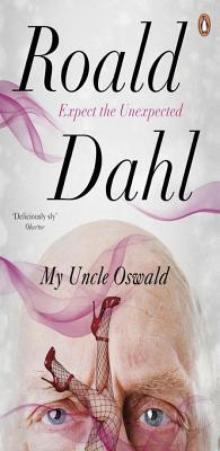 My Uncle Oswald
My Uncle Oswald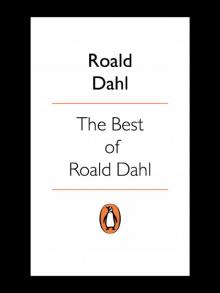 The Best of Roald Dahl
The Best of Roald Dahl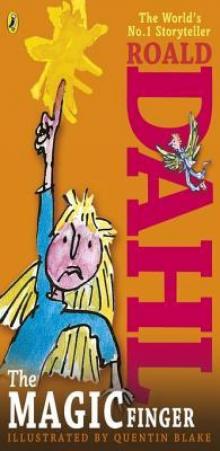 The Magic Finger
The Magic Finger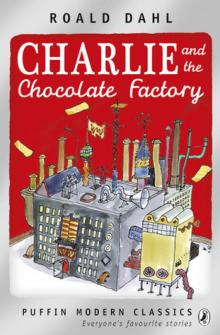 Charlie and the Chocolate Factory
Charlie and the Chocolate Factory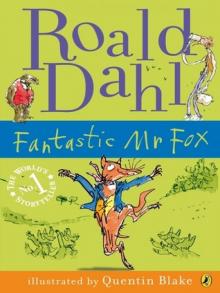 Fantastic Mr Fox
Fantastic Mr Fox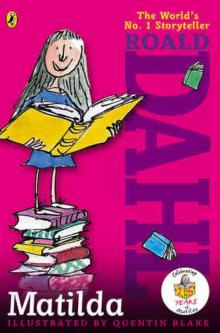 Matilda
Matilda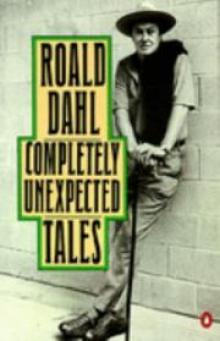 Completely Unexpected Tales: Tales of the Unexpected. More Tales of the Unexpected
Completely Unexpected Tales: Tales of the Unexpected. More Tales of the Unexpected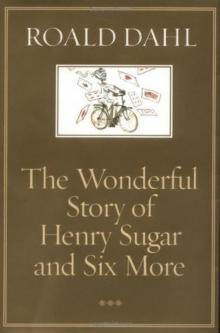 The Wonderful Story of Henry Sugar and Six More
The Wonderful Story of Henry Sugar and Six More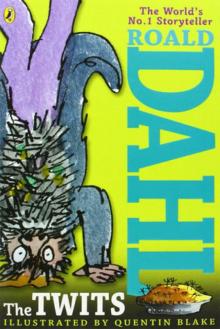 The Twits
The Twits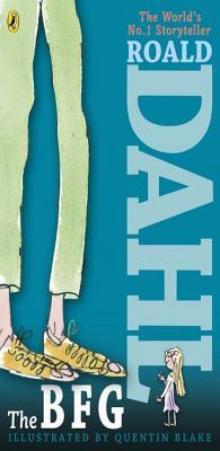 The BFG
The BFG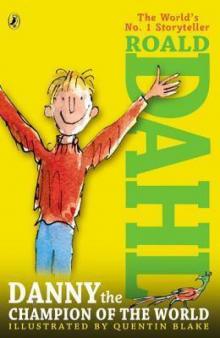 Danny the Champion of the World
Danny the Champion of the World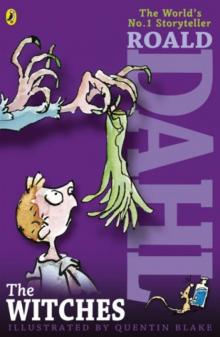 The Witches
The Witches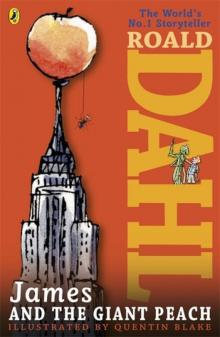 James and the Giant Peach
James and the Giant Peach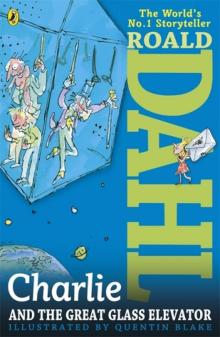 Charlie and the Great Glass Elevator
Charlie and the Great Glass Elevator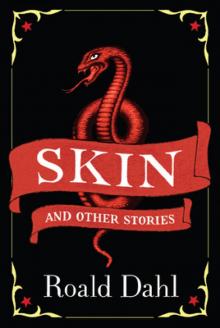 Skin and Other Stories
Skin and Other Stories Kiss Kiss
Kiss Kiss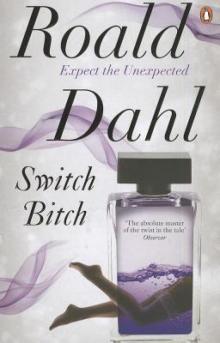 Switch Bitch
Switch Bitch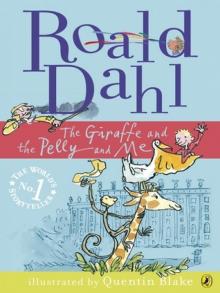 The Giraffe and the Pelly and Me
The Giraffe and the Pelly and Me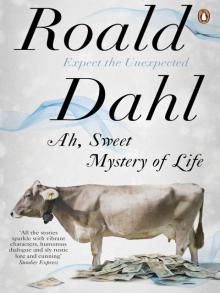 Ah, Sweet Mystery of Life
Ah, Sweet Mystery of Life Fear
Fear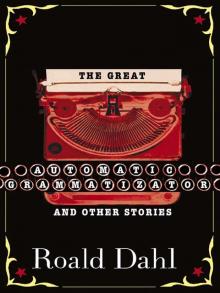 The Great Automatic Grammatizator and Other Stories
The Great Automatic Grammatizator and Other Stories Someone Like You
Someone Like You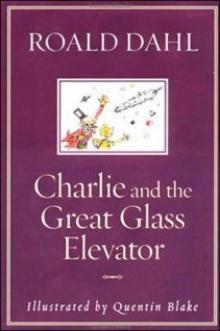 Charlie and the Great Glass Elevator c-2
Charlie and the Great Glass Elevator c-2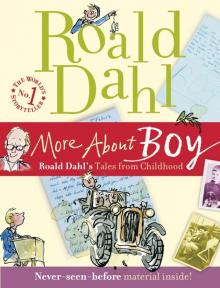 More About Boy
More About Boy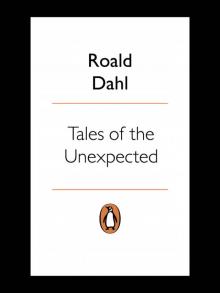 Tales of the Unexpected
Tales of the Unexpected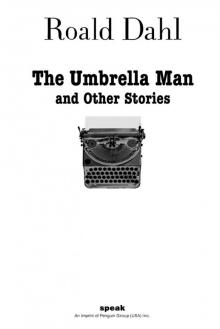 The Umbrella Man and Other Stories
The Umbrella Man and Other Stories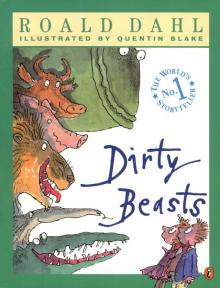 Dirty Beasts
Dirty Beasts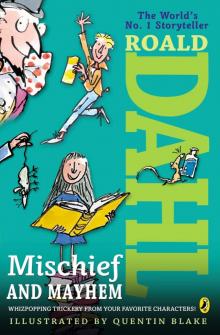 Roald Dahl's Mischief and Mayhem
Roald Dahl's Mischief and Mayhem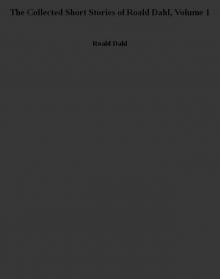 The Collected Short Stories of Roald Dahl, Volume 1
The Collected Short Stories of Roald Dahl, Volume 1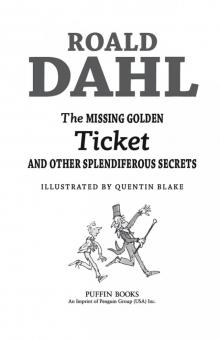 The Missing Golden Ticket and Other Splendiferous Secrets
The Missing Golden Ticket and Other Splendiferous Secrets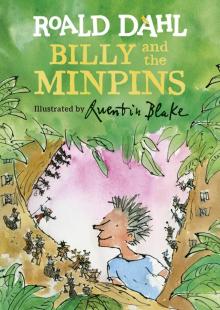 Billy and the Minpins
Billy and the Minpins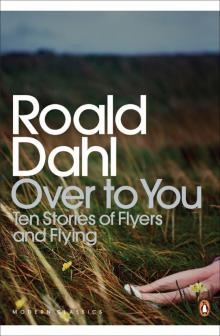 Over to You
Over to You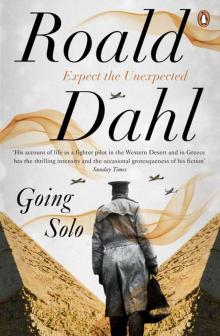 Going Solo
Going Solo Deception
Deception War
War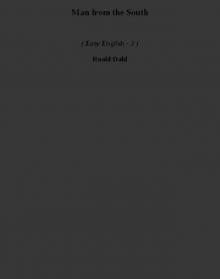 Man from the South ee-3
Man from the South ee-3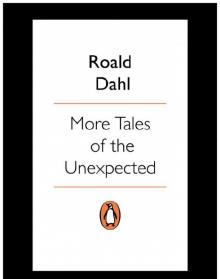 More Tales of the Unexpected
More Tales of the Unexpected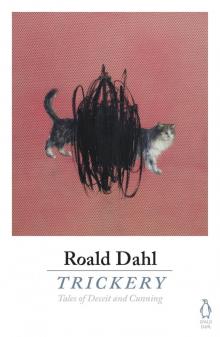 Trickery
Trickery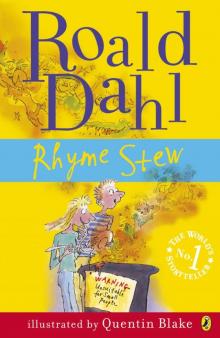 Rhyme Stew
Rhyme Stew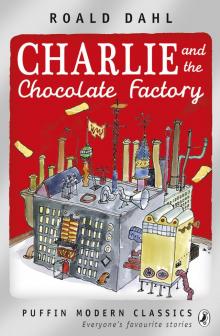 Charlie and the Chocolate Factory (Puffin Modern Classics relaunch)
Charlie and the Chocolate Factory (Puffin Modern Classics relaunch)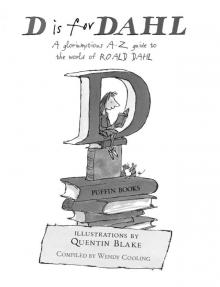 D is for Dahl
D is for Dahl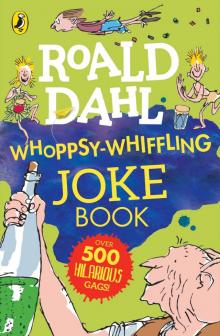 Roald Dahl Whoppsy-Whiffling Joke Book
Roald Dahl Whoppsy-Whiffling Joke Book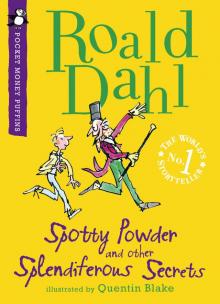 Spotty Powder and other Splendiferous Secrets
Spotty Powder and other Splendiferous Secrets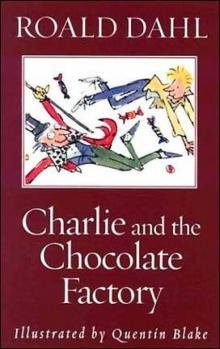 Charlie and the Chocolate Factory c-1
Charlie and the Chocolate Factory c-1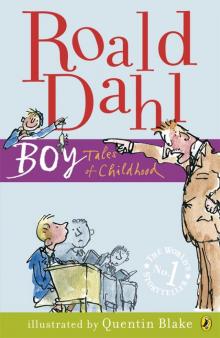 Boy
Boy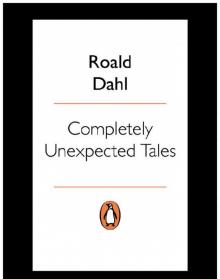 Completely Unexpected Tales
Completely Unexpected Tales Madness
Madness Innocence
Innocence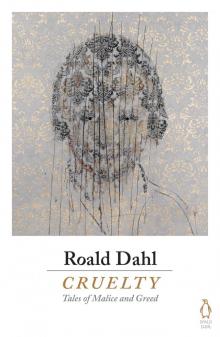 Cruelty
Cruelty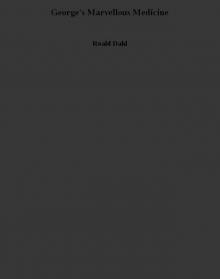 George's Marvellous Medicine
George's Marvellous Medicine